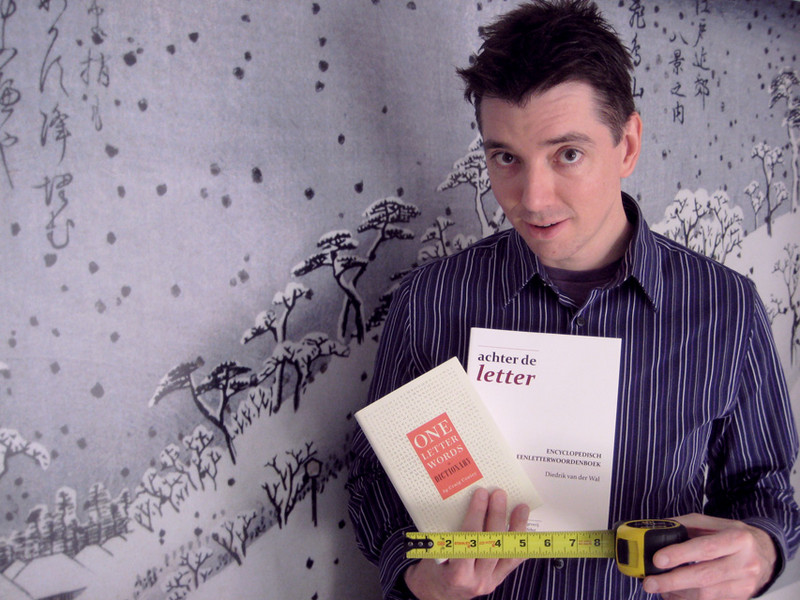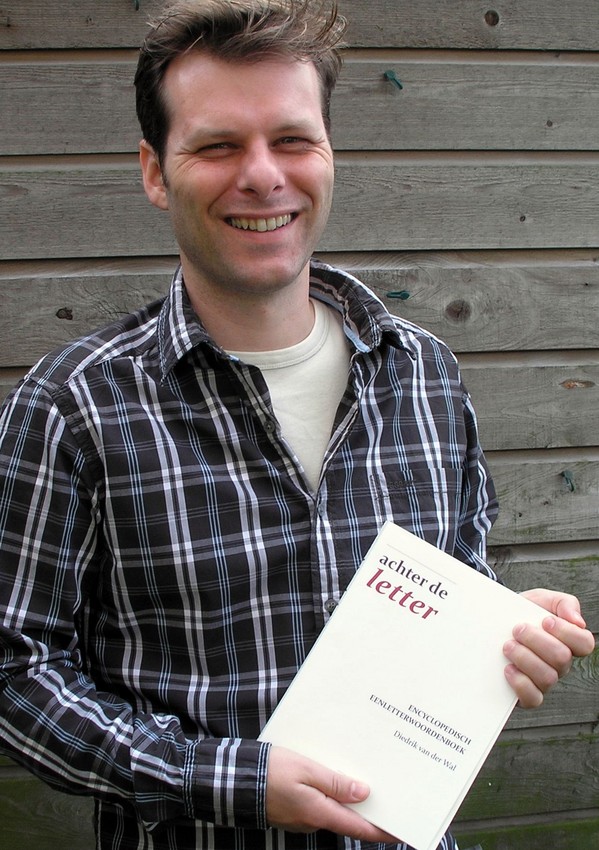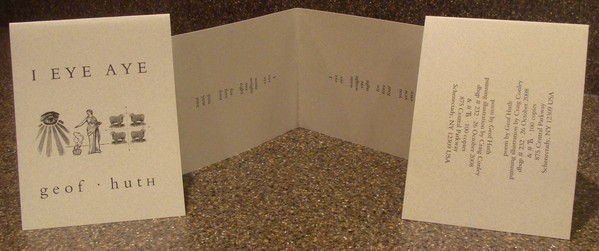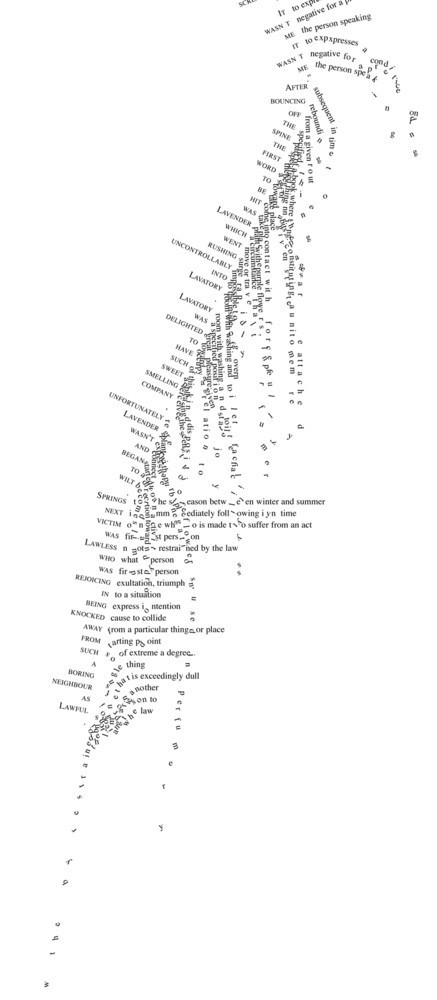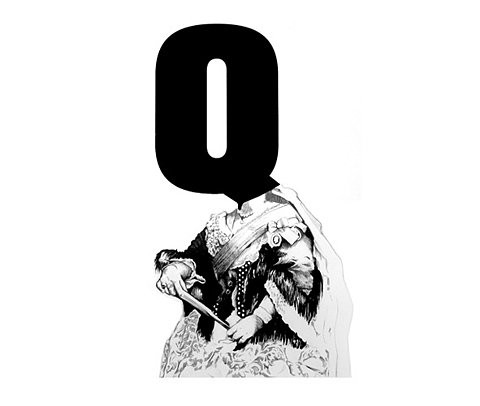|
|
 |
 |
 |
From our outpost at Blogger, here's an excerpt from Janet Boyer's review of our Magic Words: A Dictionary: The first 48-pages of Magic Words
are utterly fascinating, with Conley an engaging tour guide through
literary, philosophical, cultural and spiritual landscapes—realms
dotted with landmarks that pay homage to the power of magical
utterances (and, sometimes, even to silence and mysterious glyphs).
Not
only does Conley offer examples of poetic incantations and the
mysterious power of words in his introduction, but he also provides
fascinating insight into the vocabulary of ritual (and why we get the
giggles during solemn occasions!), the four archetypes of the Magician,
and our ability to imbue “ordinary” moments with the magic of both
cadence and connation.
The rest of Magic Words is dedicated to, well, magic words!
With
word origins, facts, variations, meanings, mystique and appearances in
literature, this A to Z guide offers a mind-boggling array of
information to be mined by would-be magicians, entertainers, writers
and artists. . . .
Magic Words
is, indeed, a meticulously researched, heavily footnoted, and absorbing
read, especially for lovers of trivia and words. Performers seeking to
spruce up their magic routine would do well to consult this book, as
would all manner of artists who seek to infuse their work with meaning,
mystery, flair or sacredness. See the full review here. Janet is author of The Back in Time Tarot Book.
--- Gary Barwin writes: Those are indeed magic words. Congratulations!
|

 |
|
|
 |
 |
 |
"He spoke as if each full sound he uttered was equal to the presence of a new statue in one's courtyard." — Norman Mailer, Ancient Evenings (Highly recommended!)
|

 |
|
|
 |
 |
 |
Did you know: "It is not possible to burn a candle at both ends. If one end of the wick is ignited, the other end will immediately be extinguished." Or: "Cardboard is nothing more than wood in an early stage of development." Or: "Cheese never spoils; it simply changes into a different kind of cheese." These and other hilarious facts are part of Dr. Boli's Encyclopedia of Misinformation. |

 |
|
|
 |
 |
 |
"I write so as not to be written. For many years I was written in my life, I acted out a story. I suppose I write in order to write others, to operate on the imagination, the revelation, the knowledge of others." —Fogwill, qtd. in Bartleby & Co. by Enrique Vila-Matas (an author well-worth investigating!) --- Jeff writes: "I write so as not to be written." Only eight words, yet they so fluently describe the root of life's discontent: a part in an obtuse play written for sitcom audiences and household pets. No offense intended toward the pets.
|

 |
|
|
 |
 |
 |
We got a laugh out of Omegaword's call for omitting the apostrophe when a word is missing a letter. The piece ends with a humorous mention of "infernal punctuation." Did you know that in Hell, periods wear dresses? Here's the documentation: Charles Dickens was persecuted by the demonic prongs of the "infernal dash": Pray take care that they always strike out that infernal dash which I myself have taken out five hundred times.
—a letter to William Henry Wills, his sub-editor
We looked up infernal colons, semicolons, commas, hyphens, question marks, and exclamations, to no avail. Those marks must all be heavenly. By the way, don't miss this page about the anatomy of cloud commas. --- Jeff responds: Following that anatomy of cloud commas link shouldn't be attempted before breakfast. I did it anyway, eventually arriving at a page titled VERTICAL MOTION - OMEGA EQUATION, where I found an "equation [that] is a presentation of the omega equation where the connection between the contributions to vertical motion and the characteristic cloud configurations can be discriminated."
I deny all allegations that I had anything to do with this so-called Omega Equation, just in case anyone decides to allege it.
|



 |
|
|
 |
 |
 |
Wilfried Hou Je Bek recently asked us to transcribe this ape call. We used our own Do-Re-Midi system of text-based musical notation. The ape's call is rendered in 8/4 time (eight beats per measure) and lasts six measures. The ape's tones range from a low B to a high G (one octave plus six notes). For an explanation of the melody line and tone durations, see the Do-Re-Midi specifications.
See a variety of fascinating transciptions in Wilfried's PDF of Wax Chimpatic.
|

 |
In a quest to find the greatest number of words contained within any given word, Lacey Echols put our dictionary of one-letter words to the test. How did we measure up? Even though I have a fairly large vocabulary, I do not know many words which are one-letter words. Ask me to identify three- and four-letter words, and I am at ease. One letter? The only common single letter words are "a" and "I"! However, I was fortunate to hear about a book which could be my saving grace, One Letter Words--A Dictionary, by Craig Conley. I felt my confidence begin to soar because with the help of this dictionary I should easily be able to count all one-letter words in any given word, or could I? Being a bit of a skeptic, I tested my skill with the word "ait". "I" and "a" are legitimate, but what about "t"? Sure enough, Mr. Conley provides 58 instances in which "t" is used as a word. As an example, "it suits you to a T" uses "t" as a word. Hallelujah! But "ait" is a fairly simple word. What about "Mozambique"? I feel a time-consuming project ahead. Actually, the dictionary is foolproof. There are thirty-five examples using the word "z" and even twenty-seven examples of the word "q". Read the full article: "My Visit to Grant's Tome," Word Ways: The Journal of Recreational Linguistics, Aug. 2007. |







 |
|
|
 |
 |
 |
Library Journal reviewed our Magic Words: A Dictionary in the Oct. 15 issue: Despite its undeniable appeal to New Age audiences, Conley's (One-Letter Words) book of more than 700 words and phrases is just as relevant to the linguist and language enthusiast as it is to Occult followers. A vividly written introduction includes contemplations on ritual and pronunciation, and each multi-paragraph entry explains meanings, origins, and literary references. Like an academic work, the text is liberally footnoted, citing pop culture, literary, or Internet uses of the word or phrase—although it occasionally omits significant references. Recommended for pop culture, New Age, and language libraries.
Meanwhile, don't miss our interview at The Tarot Channel, about Magic Words: A Dictionary. Also, our Carte Blanche Atlas of blank maps was praised for its "useful insights" over at Year Two Blog. --- Jeff writes: I believe congratulations are in order! So many positive reviews . . . but then, that's as it should be.
|

 |
"Writing is a way of speaking without being interrupted." —Jules Renard
|




Page 64 of 74

> Older Entries...

Original Content Copyright © 2026 by Craig Conley. All rights reserved.
|




